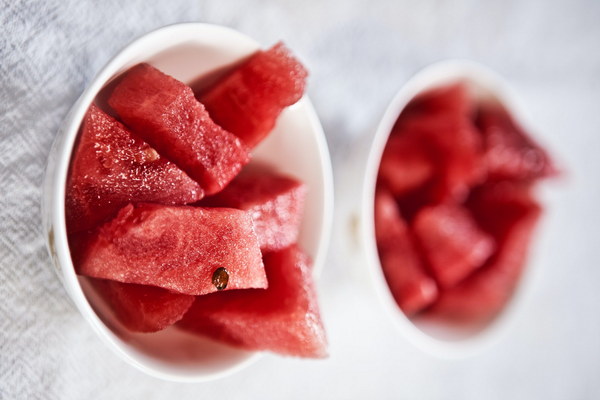The Role of Whole Grains in Nourishing Your Spleen or Kidneys A Comprehensive Guide
Introduction:
In traditional Chinese medicine (TCM), the concept of balancing the body's internal organs is central to maintaining health and well-being. Among the vital organs, the spleen and kidneys are particularly important. While both organs play crucial roles in the body, their functions differ. In this article, we will explore how whole grains can contribute to the nourishment of the spleen and kidneys, and which organ benefits most from their consumption.
The Spleen and Its Functions:
In TCM, the spleen is responsible for transforming food into energy, maintaining blood quality, and governing the muscles and limbs. It also plays a vital role in the production of Wei Qi (defensive energy) that protects the body against external pathogens. When the spleen is healthy, the body is better equipped to ward off diseases and maintain overall health.
The Kidneys and Their Functions:
The kidneys are considered the root of life in TCM. They are responsible for storing essence, producing sperm and blood, and governing the bones, ears, hair, and the lower back. The kidneys also regulate the urinary system and the reproductive system, and they play a crucial role in the balance of water in the body. A healthy kidney means a strong immune system, vitality, and longevity.
Whole Grains and the Spleen:
Whole grains, such as brown rice, oats, quinoa, and barley, are rich in nutrients that can help nourish the spleen. These grains contain B vitamins, iron, and fiber, which are essential for the spleen's functions.
B vitamins, especially niacin and vitamin B6, are vital for the production of energy from food. Iron helps in maintaining blood quality, and fiber aids in the digestion and absorption of nutrients, supporting the spleen's transformation process.
Whole Grains and the Kidneys:
While whole grains are beneficial for the spleen, they also play a role in kidney health. Kidneys require a balance of yin and yang to function optimally, and whole grains can help maintain this balance.
For example, kidney-friendly grains such as millet and buckwheat are rich in minerals like selenium, magnesium, and phosphorus, which are essential for kidney function. Selenium, in particular, has antioxidant properties that can help protect the kidneys from oxidative stress.
Choosing the Right Whole Grains:

To determine whether whole grains are more beneficial for the spleen or kidneys, it is essential to consider individual health needs and TCM principles. Here's a guide to choosing the right whole grains:
For Spleen Support:
- Brown rice: A staple in many Asian diets, it is rich in B vitamins and fiber, making it excellent for spleen health.
- Oats: High in fiber and B vitamins, oats can help regulate blood sugar levels and support the spleen's energy production.
- Quinoa: This gluten-free grain is a great source of protein, B vitamins, and fiber, which can benefit the spleen.
For Kidney Support:
- Millet: A gluten-free grain with a low glycemic index, millet can help maintain kidney balance and support overall kidney health.
- Buckwheat: Rich in antioxidants and minerals, buckwheat is a kidney-friendly grain that can aid in kidney function.
- Barley: This grain is high in fiber and contains B vitamins, which can help support the kidneys.
Conclusion:
In conclusion, whole grains can contribute to the nourishment of both the spleen and kidneys. While some grains are more beneficial for the spleen due to their high fiber and B vitamin content, others, such as millet and buckwheat, are more beneficial for kidney health due to their mineral content and ability to maintain yin and yang balance. By incorporating a variety of whole grains into your diet, you can support the health of both your spleen and kidneys, leading to a more balanced and harmonious life.









